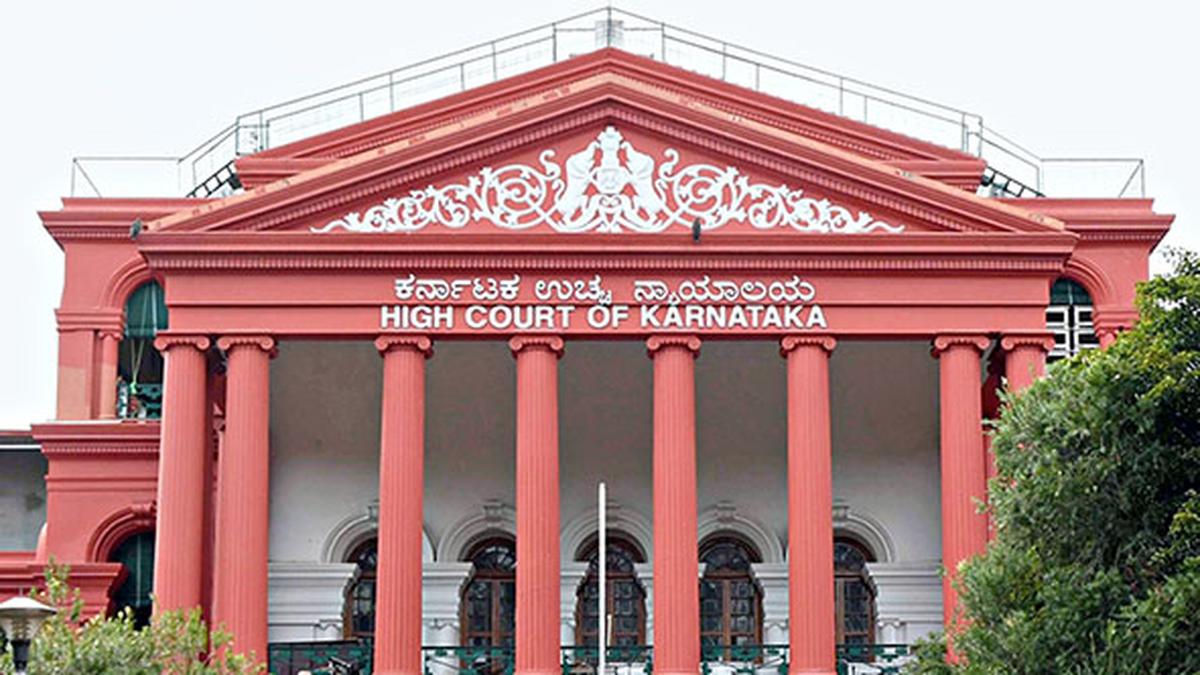
The Karnataka High Court released the full written version of its judgement on May 29, 2025 in which it observed that courts could not remain “mute spectators”. FIle
| Photo Credit: The Hindu
The Karnataka High Court, which ordered the Union government to block Proton Mail in India last month, released the full written version of its judgement on Thursday (May 29, 2025), in which it observed that courts could not remain “mute spectators” when such a platform became a “menace”. Its order was in response to a complaint that Proton had refused to help identify users sexually harassing a woman via the Swiss end-to-end encrypted email platform.
Despite the April 29 order, Proton Mail is still easily accessible in most of India. Karan Saini, a security researcher who has developed a tool to detect website blocking by various internet service providers, told The Hindu that as of Thursday (May 29, 2025), most ISPs did not seem to be blocking Proton Mail.

The text of the full judgement shows that K. Arvind Kamath, the Additional Solicitor General of India who represented the Union government in the case, did not push back on the court’s right to block Proton Mail. However, he said that such orders “require procedure to be followed and the balance of bilateral relations between the two countries.” Swiss authorities had reportedly engaged with the Union government on Proton’s behalf after a complaint last year.
The High Court’s order directed the Union government to “initiate proceedings in terms of Section 69A of the Information Technology (Amendment) Act, 2008 r/w Rule 10 of the Information Technology (Procedure and Safeguards for Blocking of Access of Information by Public) Rules, 2009 to block Proton Mail… Till such proceedings are taken up by the Government of India, the offending Uniform Resource Locator – URLs that are indicated in the petition shall be blocked forthwith.”
‘Undermines women’s privacy, integrity’
The order came in response to a petition filed by M Moser Design Associates, a Bengaluru-based firm which said that it had received multiple emails from an anonymous Proton Mail account targeting a senior executive at the firm. The judgement described the first email from the anonymous account as containing “obscene, abusive, vulgar, sexually coloured, derogatory and defamatory remarks in respect of one of the female senior personnel” of the company.
While the email ID was taken down after M Moser Design complained to Proton, another account sent a similarly obscene email within the same week. Even following formal complaints to the police, Proton Mail did not provide any details that could lead to the identification of the individual or individuals behind the account. An email by the platform reproduced in the order said that Proton would only be able to act on a formal law enforcement request from India.
“Courts cannot remain mute spectators when faced with such menace which undermines privacy and integrity of women in particular,” the order said.
Swiss intervention
Proton AG, which runs the email platform, said in a post last year that Swiss authorities had interceded on its behalf after a formal recommendation by Tamil Nadu police to block Proton Mail in India. This year too, Proton Mail updated that blog post after the High Court pronounced its judgement, saying that Swiss authorities were engaging the Indian government in the matter.
However, Marc Løebekken, Head of Legal at Proton, told The Hindu that this was an erroneous statement, as the update was referring to discussions Swiss representatives had with India last year. The blog was eventually amended. Mr. Løebekken told The Hindu on May 10 that the company was awaiting the publication of the court order in full.
A Proton spokesperson did not respond to a request for comment after the court order was released. The company was not represented in the Karnataka High Court.
Jurisdiction hurdles
“The investigation, though earnest, in endeavour, faltered against the bulwark of international jurisdiction, and encryption,” the court said. “The State machinery hamstrung, by the absence of enforceable cooperation from Proton AG and the lack of a server within its jurisdiction, submitted its helplessness, in the form of a report.”
Ordering the blocking, the court said that Proton “undoubtedly falls short of the duties prescribed under Indian Law,” adding that the firm’s “inaction and opacity strike at the heart of digital accountability and embolden the malicious.”
Published – May 29, 2025 11:49 pm IST



